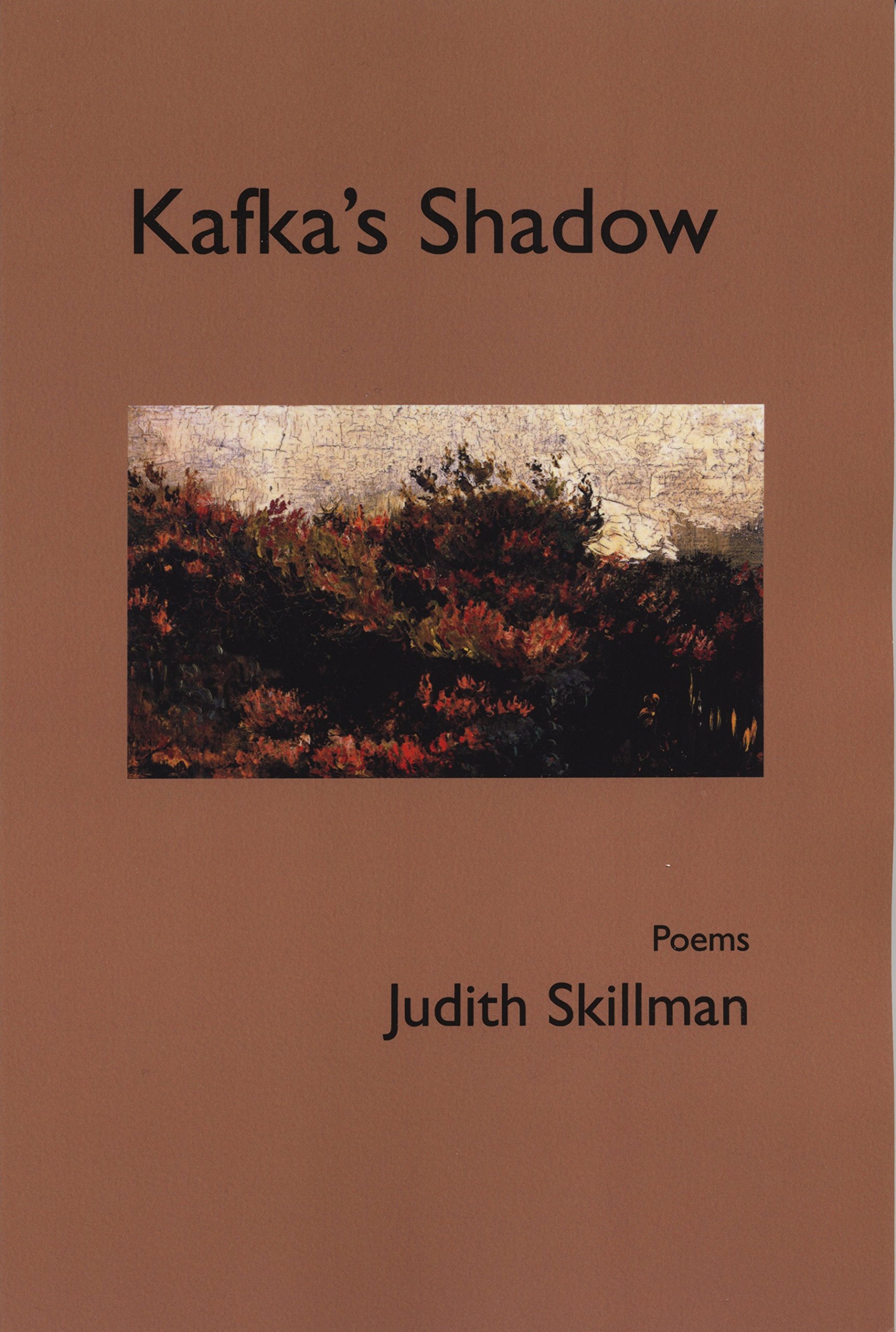 Reviewed by Carol Smallwood
Reviewed by Carol Smallwood
Kafka’s Shadow.
by Judith Skillman
Deerbrook Editions
77 pages; $16.95; paperback. 2017. ISBN 978-0-9975051-4-6
A contemporary American woman poet takes on an awesome task when writing about a male fiction writer in another era (1883-1924) composing in German in what is now the Czech Republic. Judith Skillman, the recipient of an Academy of American Poets and included in Best Indie Verse of New England is to be commended for this unique collection.
Franz Kafka had few works published during his life, yet his influence spreads beyond literature to philosophy—his characters meeting bizarre circumstances, alienation and absurdity. The title of the poetry collection comes from one of Kafka’s letters and is also the title of one of the poems.
Poems such as “Dearest” and “Felice Ponders” employ the point of view of the woman who wants to be his wife, though Kafka never marries. Skillman uses details like bulgur wheat, her stiff collar, and a train ride from Prague to Berlin to portray the couple’s relationship and culture. “Tuberculosis,” which ends his life at 40, is written from Kafka’s point of view, with borscht soup waiting to cool, his father sleeping in a chair, and the image “fat pigeons sun themselves in winter light.”
There are several poems examining the relationship of Kafka and his father through Biblical allusions, most notably the story of Abraham sacrificing his son Isaac. Kafka’s character and his world reveal themselves not unlike layers of an onion. We feel we know them better with each poem. Three pages of notes at the end of the collection include details such as the word “pater” means father, as well as background quotes from Kafka’s many letters.
It takes a lot of craftsmanship to have readers get inside the personalities and the culture of the characters in poems based on scholarship and detailed research—a huge task; all of the poems stick to the topic of Kafka and explore aspects of his family and his times. The last of the 47 free verse poems, “Kafka’s Nocturne,” uses revealing lines in its penultimate stanza: “Rumination and obsession—/guests who sit on the bed he won’t occupy/ with a lover….”
About the interviewer: Carol Smallwood’s most recent poetry collection is In the Measuring (Shanti Arts, 2018). A multi-Pushcart nominee, recipient of the Albert Nelson Marquis Lifetime Achievement Award which supports humane societies. Find out more at https://en.wikipedia.org/wiki/Carol_Smallwood